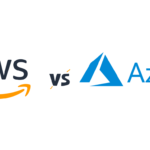Blockchain technology has the incredible potential to completely transform the traditional web hosting industry. By offering a decentralized infrastructure, it provides enhanced security, privacy, and lowers operational costs.
The best part? Unlike traditional web hosting services used by sites and online forums, blockchain web hosting assigns a unique cryptographic identity to each user, ensuring that your data remains protected from unauthorized access by third parties.
In this blog post, we will guide you through the pros and cons of blockchain web hosting and the components required for blockchain web hosting. So, let’s explore the exciting world of blockchain web hosting together.
Advantages of Blockchain Web Hosting:
Better control of personal data: With blockchain web hosting technology, you can have greater control and eliminate the need for intermediaries like hosting providers, DNS servers, and certification authorities.
Enhanced security: Blockchain web hosting solutions offer a great deal of security against cybersecurity threats like hacking, distributed denial-of-service attacks, and data breaches. The technology relies on a tough cryptographic framework that creates an unchangeable and tamper-proof record of all transactions, making it extremely difficult to hack.
Use of cryptocurrency: Blockchain web hosting is a fantastic way for users to conveniently make payments using cryptocurrency, instead of relying on traditional methods like credit cards, bank transfers, or Paypal. This not only reduces dependencies on centralized financial institutions but also ensures anonymity and privacy for users. Enjoy the benefits of secure and private transactions with blockchain hosting.
Lower operational costs: Blockchain web hosting helps to lower operational costs by using a super cool peer-to-peer network that eliminates the need for central infrastructure, maintenance, and updates. This means that web hosting becomes more affordable and accessible to a wider audience.
Limitations of Blockchain Web Hosting:
Scalability issues: Blockchain web hosting services are continuously evolving, but they still face some scalability issues. These mainly revolve around transaction throughput and network congestion, which can cause delays in real-time data transfer.
Limited storage and inability to store large files: Since blockchain technology is still developing, it comes with inherent limitations, such as limited storage capacity and the inability to store large files. This can pose challenges for implementing complex web applications like video streaming or data-intensive services.
Standardization and interoperability challenges: Blockchain hosting is still in its early stages, leading to a lack of standardization and interoperability between different blockchain platforms. This can create compatibility issues and barriers for new entrants.
Technical performance issues: As blockchain hosting is relatively new, it requires specialized knowledge to implement and manage effectively. This can lead to performance issues, bugs, and other technical problems that may require additional resources for resolution.
Legal risks and regulatory guidelines: Blockchain hosting solutions operate in a legal grey area, without clear regulatory guidelines. This can make it challenging for users to ensure compliance with local laws and regulations.
Vulnerabilities in encryption, API query verification, smart contracts, and updates: It is prone to various vulnerabilities, including encryption weaknesses, insecure API query verification, and susceptible smart contracts. These vulnerabilities can lead to hacking and data breaches. Additionally, updating existing blockchain applications can be challenging and time-consuming.
Components Required for Blockchain-Friendly Websites:
To build a blockchain-friendly website, you will require the following components:
- Blockchain Hosting Service: Choose a decentralized storage and computing provider like Blockstack, Swarm, or IPFS.
- Compatible Web Framework: Use a web framework such as React, Vue, or Angular that allows seamless interaction with the blockchain and provides a user-friendly interface.
- Smart Contract System: Select a smart contract platform like Ethereum, EOS, or NEO that can handle complex transactional logic and automated agreements.
- Cryptocurrency Wallet and Payment Gateway: Utilize a secure and user-friendly cryptocurrency wallet and payment gateway such as MetaMask, Coinbase, or MyEtherWallet for hassle-free payments and asset exchange.















